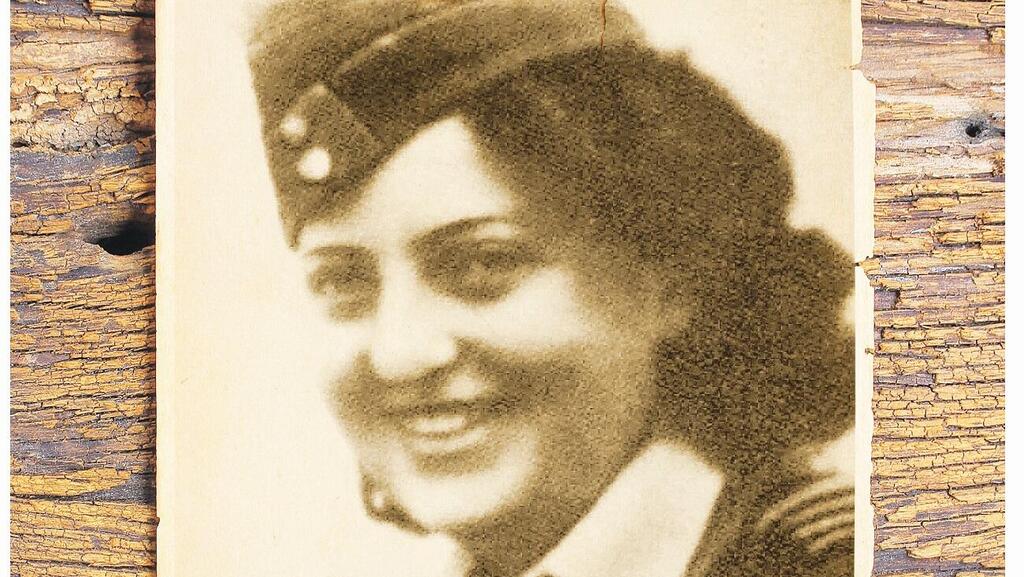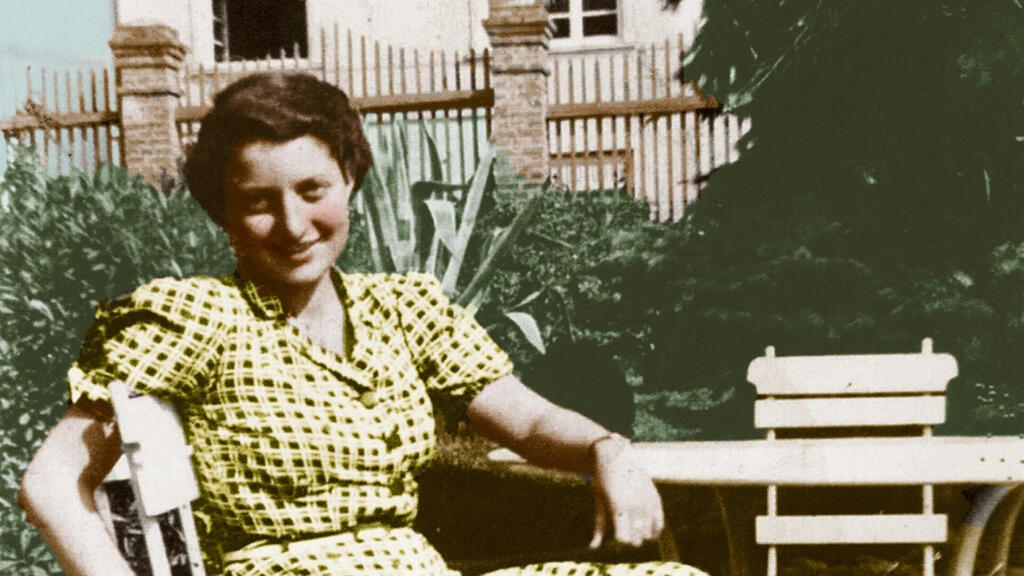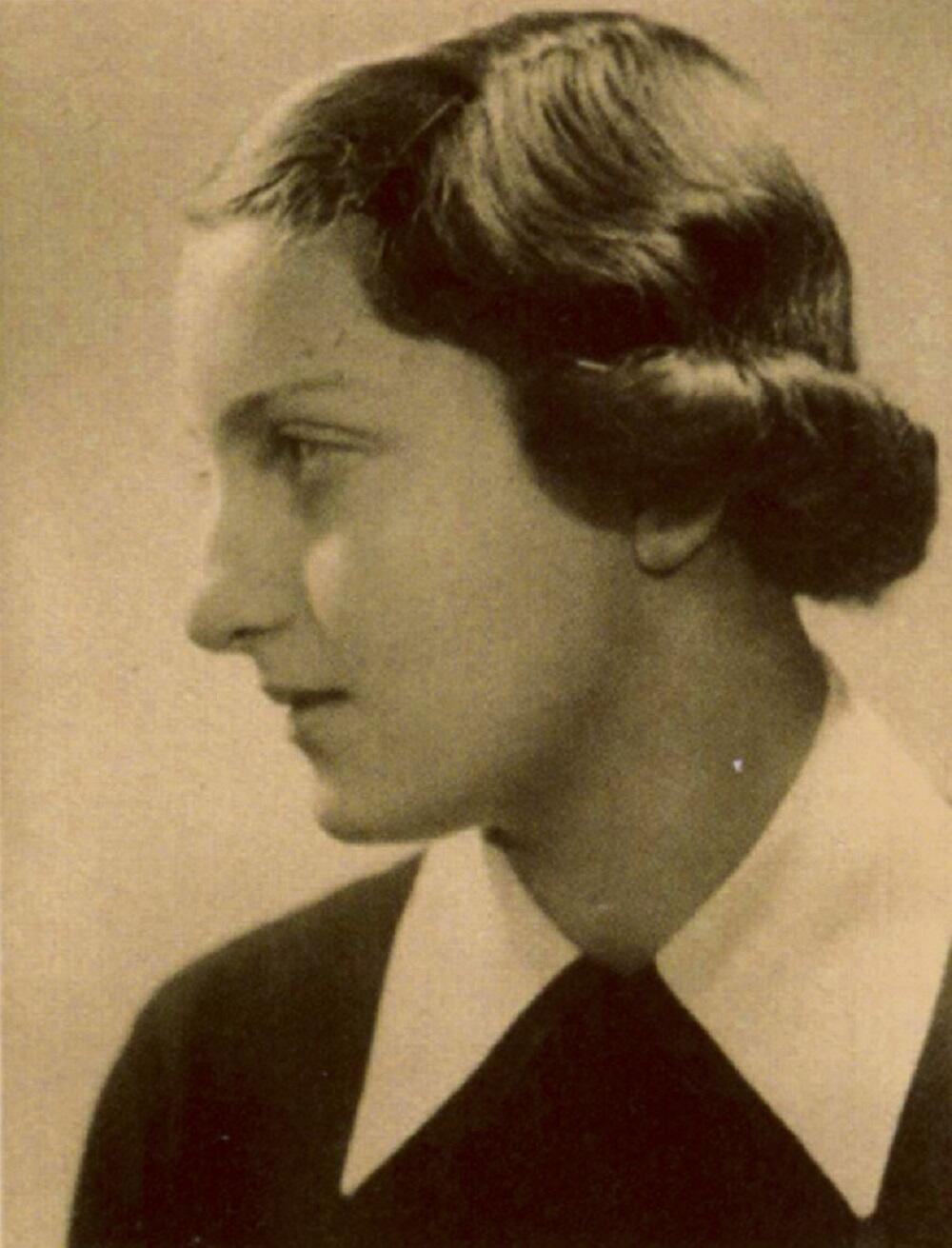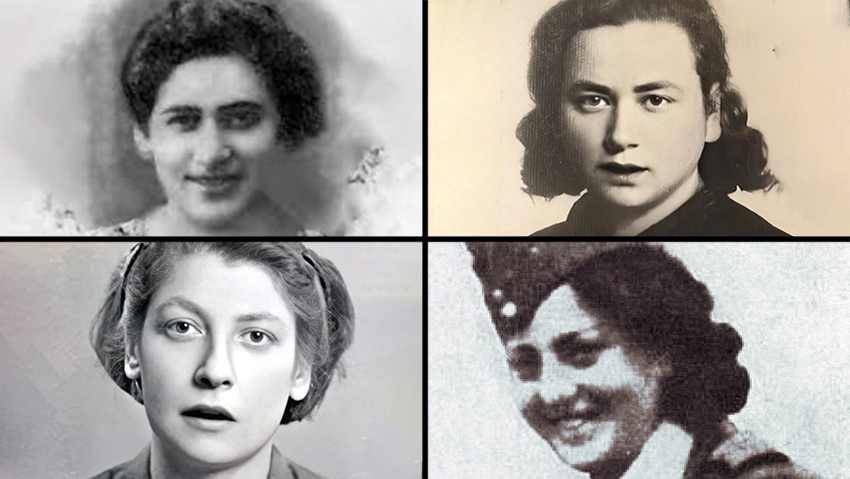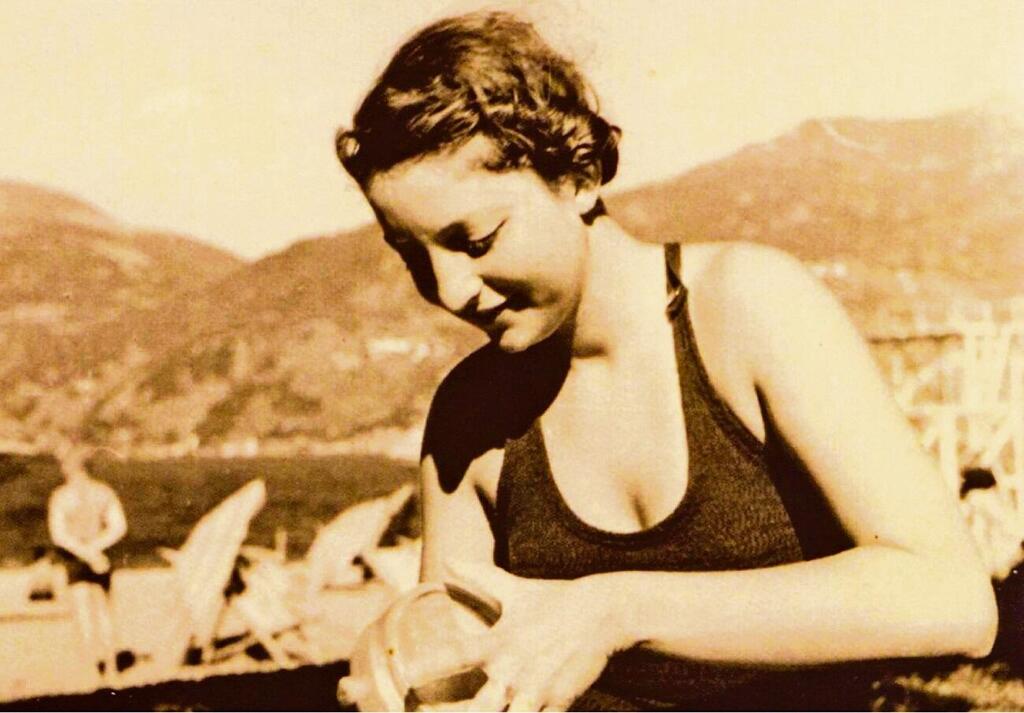October 1944 was full of hope for the Jewish paratroopers from Palestine, who were imprisoned in Budapest. The Hungarian capital was under bombardment in an unprecedented amount of air strikes, as American B-17s and British Lancastrians dropped tons of bombs on the city, one of the most beautiful in Europe.
Related Stories:
Sirens blared and Hungarian anti-aircraft guns fired into the air. The paratroopers saw this as a sign of the coming victory of the Allied forces and the Russian Red Army, who were closing in on the city. On October 15, 1944, their hope turned into reality. A prison guard at the facility where Yoel Palgi and Peretz Goldstein were held exclaimed, "Brothers' Freedom!" and Hungary's leader, Miklos Horthy, had declared a truce.
Rumors spread among the prisoners that day that, except for convicted criminals, prison doors would open wide, and everyone would be released. It's likely that the same news also reached Hannah Szenes' prison as well.
In Yoel's cell, there a festive atmosphere prevailed and plans were being made to spend the evening at a fancy Budapest restaurant. Peretz told Yoel that people in their kibbutz would have a hard time recognizing them and that surely much has changed there. Excitedly, Yoel told his friends that before any celebrations, they must go to Hannah's cell and release her. She must also enjoy the victory over the Nazis, and if possible, they should settle the score with the Hungarian secret police and their commander, Roza, whom they despised.
Hungarian prisoners had already been released, but despite their cries to the guards, their cell doors remained closed. The guards said that the order to release them had not yet been given.
The latest rumor that circulated in the prison that evening was that a well-known fascist prisoner, who was serving a sentence, had been released. This news caused concern over the priority given to him. The next morning, on October 16, 1944, all hopes for their release faded.
According to the guards, street battles raged in Budapest overnight between supporters of Miklós Horthy, who sought to end the war and had been declared a traitor by the Nazi regime, and the Austrians, their Nazi allies.
The prisoners were unaware of this, but Horthy was arrested and sent to Berlin. As a means of pressuring him, his son was kidnapped in Budapest by a Nazi commando unit under the command of Otto Skorzeny. Members of the "Arrow Cross Party," an antisemitic fascist movement, seized power and appointed one of their leaders, General Ferenc Szálasi, as the new Hungarian Prime Minister.
The change in power was felt immediately in the prison. The previous commander, who was humane, was dismissed, and in his place, a new administrator, a member of the Arrow Cross party, was appointed. Morning walks, in the courtyard, were canceled, and the prisoners' right to request medical examinations was revoked. Meetings with the doctor had been a source of news about what was happening outside the prison walls.
The new prison commander visited the prisoners' cells, and when he arrived he inquired as to the identity of the inmates. "British paratroopers," the guard replies.
The Hungarian military court held its hearing in the same prison that held the paratroopers but not Hannah, who was in a different military prison. On October 20, Yoel, Peretz, and a Hungarian Jewish prisoner were called to the prison warden’s office. “Where is the Yellow badge?” he shouted. The guard who was with him reminded him that these were the British paratroopers. The prison commander asked: "Jews?" and said "Dogs! We’ll hang you one by one.”
After a long wait for his trial, a rumor reached Yoel that moved him to tears: "Hannah is here." He didn't see her himself, but her presence in the same place where she was waiting for her trial worried him. He had no doubt about the expected verdict for Hannah. To the Hungarian fascists, she was not a British paratrooper or a prisoner of war, but a Hungarian who had betrayed her homeland.
"The true traitors are those who have brought this calamity to the nation"
Hannah Szenes was brought to trial, in front of a panel of four judges - two senior officers in the Hungarian army, members of the Arrow Cross party, and two civilians. Also present in court was the prosecutor, who had already made it clear that he intended to seek the death penalty for Szenes. Her lawyer was not allowed to represent her in court. And the judges asked her if she admitted to the charges of betrayal and espionage against Hungary.
Szenes rose up and said: "I did not betray my country. I came here on behalf of my one and only true homeland, the land of Israel," she said. "I was born here in this city. Here I learned the love of beauty, respect for others, and to aspire to a better world. I loved the people here and through them, I learned to love those who were suffering and oppressed. I dreamt of a beautiful world in which Hungarians would be compensated for their great suffering. My father was a writer and he instilled in me the belief that good will triumph over evil. I was moved by the nation's greatest writers, from whom I learned that one must fight for the triumph of the good. It seemed to me that this was the spirit of the Hungarian people," she said.
"When I grew up, I realized that as a Jew, there was no place for me in this country. The peasant was oppressed by the land owner and he in turn, turned the peasant against the Jews claiming they were all thieves stealing food from his children's mouths. The leaders opted for a policy of racism and one by one laws were passed, that discriminated against the Jews," she said.
Thus I awoke from my false dread, the one dreamt by my forefathers and understood that I no longer had a homeland here. I went to build a new one, a Jewish one, a real one. But then came the war. This regime, which mislead its people for 25 years, now brought upon it, the worse disaster. You needlessly joined the Nazis in this war. Hundreds of thousands perished as a result. But not your alliance with the Nazis brought me here to fight you. It was the Hungary of the past that I remembered. I was sorry to see the Hungarian people, so close to my heart, fall victim to its scrupulous leaders," she said.
"But fighting alongside the Nazis was not enough for you and you turned your mallice toward my people, so I came to save my Jewish brethren. I am not a traitor to my people. You have betrayed the Hungarian people," she said.
"No, I am not betraying my homeland. My true homeland is the land of my ancestors, to which I have returned. Nevertheless, I remain loyal to Hungary, where I was born. The mission that brought me here is also an expression of that loyalty. Every Jew who remains alive in Hungary after this terrible war will ease the judgment against Hungarians and advocate for leniency amid the guilt the Hungarian people will have to bare. The true traitors are those who have brought this calamity to the nation. You, honorable judges, should not add more sin to that crime."
Szenes continued to speak but the prosecutor requested she be silenced claiming that in her words she was harming the people of Hungary. the witnesses were removed from the court at the order of the chief judge. The panel found it hard to hear such accusations against them, from a person on trial for treason, who told them that the regime has itself betrayed its people when it aligned with the Nazis and was culpable in the destruction of the Jewish people.
Although she was periodically interrupted by the prosecutor, most of her speech was heard in silence and surprisingly, no verdict was delivered then but was postponed until November 4, 1944.
When the hearing was over, Szenes's lawyer who was outside the courtroom and had not heard her speak encountered a Hungarian military officer who was summoned as an expert witness for the prosecution and asked him what had transpired.
In return, the officer was asked how he was not ashamed to represent a traitor and spy to which he replied he was only doing his job. Only then did the events of the trial come to light.
That same expert witness took the stand and testified that the transmitter that was found in Szenes's possession was of advanced technology and could be received at a long distance, which he said proved she was a spy and a traitor. Although he was not asked to weigh in, he told the court that she should be put to death.
6 View gallery
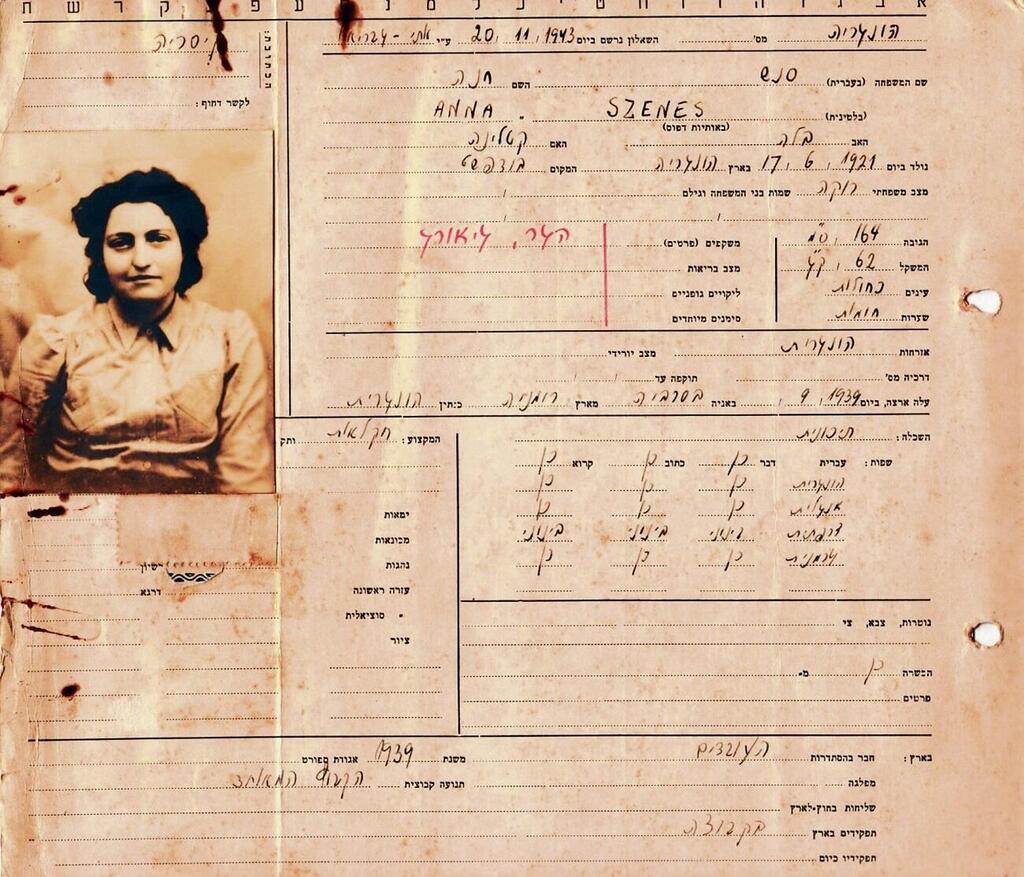

Documents of the Haganah Zionist paramilitary before Hannah Szenes left to Budapest
(Photo: Archive of the Hagnah and the Defense Ministry)
Palgi had hoped that Hannah would be moved to the prison where he and his friends were being held, but she was returned to the women's prison, where she was the only prisoner from the group of paratroopers. He heard about Hannah's defense speech and thought to himself what a heroine she was, and hoped that at least one of their number would return home safely to tell the story of her bravery, never expecting to be the only survivor and therefore the one to do so Although he knew she would be able to tell the story of the Jewish paratroopers who were dropped into Hungary, better than anyone.
During the months of her imprisonment, except for her last days, Szenes was not given writing materials. Apart from one song and farewell letters, she was allowed to write at the last moment, She did not write the final chapter of her life. She still hoped that her judges would not dare to impose the death sentence on her but was unaware that the prosecutor and the panel's chief judge, had received a letter from the fascist military chief ordering them to execute her immediately.
Hannah was sentenced to death by firing squad
For several days at the beginning of November 1944, there were no hearings in the military court, except for one that nobody knew about. One of the judges in the trial, decided on the morning of November 7, 1944, to issue a death sentence against Szenes. Her accusations against the regime in Hungary shocked him and his fellow judges. Contrary to the usual procedure, even in a fascist country like Hungary, Hannah's defense lawyer was required to be present in the courtroom, but he was not allowed to represent her when the verdict was announced, and not by coincidence. Workers at the prison who were allowed to hear Hannah's defense speech testified afterward that they had never before heard anything like it. No lawyer could have given a closing argument equal to Szenes's own words.
The trial never reached an official end. Her four judges, all Nazi-supporting fascists did not decide Szenes's faith in her presence, in contradiction to the laws. She did not know that they had already agreed with the prosecution that she must be put to death by a firing squad and that the civilian judges were more insistent that that should be the case. Her claims that she should be treated as a prisoner of war were ridiculed because she was in civilian clothes when captured and not in a British military uniform.
On the morning of November 7th, Szenes was woken by her guards and informed she was being taken to the same prison where her trial had been heard. bound and shackled she was informed there, that she was to be executed. According to eyewitness accounts even at that moment, Hannah did not break down, did not burst into tears, and did not plead for her life.
On November 7, 1944, the day of the execution of Hannah Szenes, a few weeks before the Red Army captured Budapest, seven months before the surrender of Nazi Germany and the end of World War II, the legend of Hannah Szenes was born. A legend that lives with us to this day.


